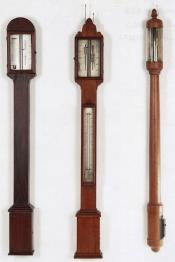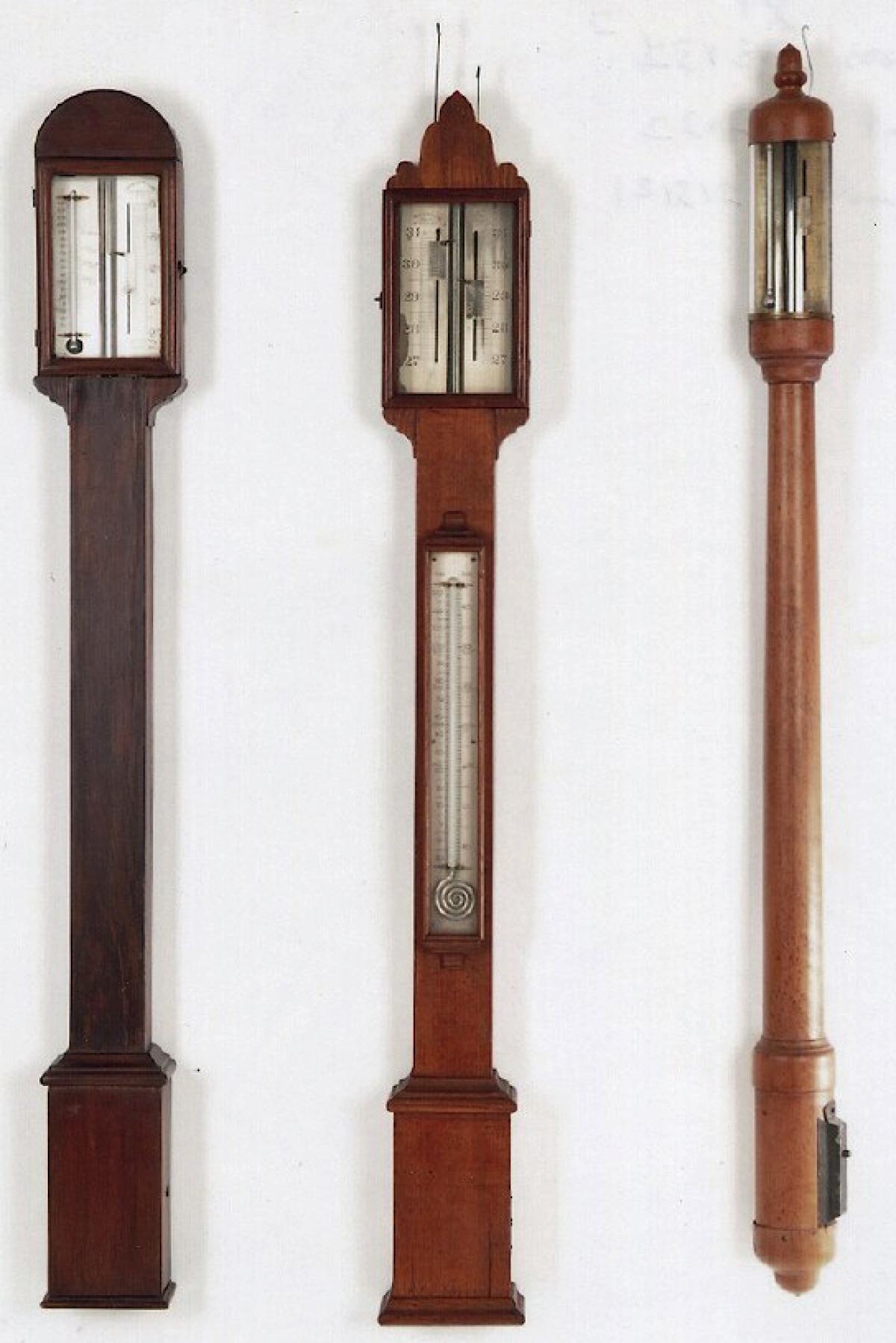Charles Wilder's three Barometer forms. Peterborough, New Hampshire.
Pictured here are the three versions of wall barometers made by Charles Wilder. The one to the left is considered the standard model and is most commonly found. The one on the right is often called the baseball bat model. This version does not come to the marketplace very often. The center example is also hard to find. All three are approximately 38 inches tall.
Charles Wilder was born the son of Mark and Eliza Ann ( Thayer ) Wilder. He attended the common schools and the Academy in Peterborough, New Hampshire. Charles became a popular teacher at the Academy and later the Principal. He had planned to continue his education and become a lawyer, but his father's debts forced him into the family business of manufacturing shoe pegs. He pursued this business for two years when in 1860, he secured the rights to manufacture portable mercury barometers under a patent issued to Mr. Lum Woodruff of Ann Arbor, Michigan. Lum Woodruff reported weather observations to the Smithsonian Institution. He patented a portable barometer that proved to be extremely popular. Its key feature was a divided cistern. It was constructed so that when the glass tube was full of mercury, the lower portion of the cistern would be as well. As a result, it could be shut off from the now-empty upper section. In the fall of 1861, Charles Wilder converted an old factory in Peterborough into a barometer shop. He began touting the virtues of Woodruff's instrument. He claimed that it was "simple, durable, accurate, perfectly portable, and very cheap" and "a very beautiful and ornamental piece of furniture." It promised farmers a five percent savings on all their crops. For scientific men, it offered "superior accuracy." And for "gentlemen of leisure and cultivation," it offered a "never ending and constantly varying study of interest." All three of Wilder's standard barometer designs had a natural position and use for a thermometer. His scale in Fahrenheit ranged from 0 to 110 degrees. Wilder Barometers were sold throughout the United States by advertising through the leading agricultural periodicals of the day. As a successful businessman and prominent citizen, he was an active member and supporter of his Church. He served as a representative to the state legislature in 1869 and 1870 and was also a town moderator in 1869. He died in 1900. The business continued for a short time until it was sold to the W. & L. E. Gurley Instrument Company of Troy, New York. (Please note that most of this information was provided by the Peterborough, New Hampshire Historical Society.)


